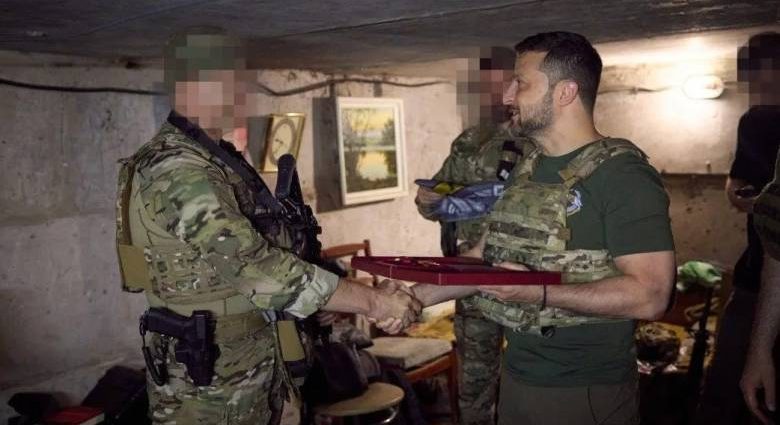No matter what pronunciamentos may come from Washington, the Russian government is expecting greater attacks on Russian territory – especially Moscow and maybe Russian ports – to try and destabilize the Putin government.
The Pentagon says that no US weapons will be used against Russian territory, but this is an outright lie. US drones and cruise missiles such as Himars plus cluster munitions supplied by the United States are used daily by Ukraine, targeting Russian territory.
So, too, is the British-French Storm Shadow (SCALP-EG). Both the British and French heavy precision cruise missiles are made by MBDA (a Consortium of French, British and Italian companies).
Nor can the US properly explain what a Global Hawk is doing spying on Russian territory, presumably to help Ukraine target Russian assets, both military and civilian.
The US openly admits that it planned and supplied Ukraine with the semi-submersible kamikaze drones used against the Kerch Strait bridge which connects Crimea to Russia, making it an attack on Russia.
Such operations are not lost on Moscow, which openly believes that it is at war with NATO led by the United States.
Thus, no matter what is said by the Pentagon or by Washington more broadly, the Biden administration is skirting close to the edge of a wider war in Europe.
The chance for a settlement of the war in Ukraine is not only elusive but increasingly irrelevant if Washington’s war aims are what they appear to be.
On August 5 and 6, Saudi Arabia is hosting a so-called peace conference on Ukraine. Some 30 nations will attend, apparently including Iran. But Russia was not invited. That suggests that the peace conference is a propaganda show, not serious.
Sooner or later, probably sooner, Russia either will decide that the war in Ukraine is a fruitless pursuit and give it up or it will decide to go after the war’s backers and suppliers.
If Russia walks away, the Russian government will fall. If Russia stays in it, the hard line nationalist faction will gain a big victory and demand that Russia expand the war. At that point, Putin will have to either reformulate his government to reflect the changes or decide not to stand for election in 2024.
If Putin steps down, there are a number of candidates to replace him from the security services and from the military. The most likely winners would come from the hard nationalist right, not from the enfeebled left.
No one can say with any certainty how resilient Russia’s military is. In the current Ukraine fighting, both sides appear to be locked in continuous battles along in the Donbas and the southern Zaphorize areas. Judging from physical evidence, the Ukrainians have lost a lot of equipment and manpower. Russian Defense Minister Shoighu claims that Ukraine lost 20,000 soldiers in July.
Russian losses are far harder to judge. If Russia stays in the war, the question arises how long it will take to wear down the Ukrainians, who face manpower shortages.
From a warfront perspective it appears that Ukraine, helped directly by the United States and the UK, is hoping to make some breakthroughs and break open Russia’s first defensive line in the south, while also hoping to control the flanks around Bakhmut and – if Zelensky wins – take back Bakhmut.
Just this past week Zelensky showed up in Chasiv Yar, the first time he has been there since before Bakhmut fell. Zelensky believes, thanks to the help he is getting from the US and UK, and from freshly trained high quality brigades, that he may be able to turn the trick.

What happens in Bakhmut could spell the end of the Ukraine war, with either a Ukrainian victory or a Russian win.
If Russia wins, Ukraine may have to accept Russian terms for a settlement. If Ukraine wins, Russia will be forced to pull some of its forces out of eastern Ukraine and could also face the loss of critical areas in the south, even Crimea.
Russia also has the option, a dangerous one, to expand the war outside of Ukrainian territory, for example in Poland or the Baltic States. Putin has made it clear that he does not favor any war expansion – but does Putin have enough clout left in Russia as outside pressure on the regime ramps up, and as internal unhappiness with the war could tilt to a more aggressive Russia?
In the annual Navy Day extravaganza hosted in St Petersburg, Putin in his address made no mention of the Ukraine war even though Navy Day came the day after drones hit Moscow. Is Moscow in denial? In the parade of ships and submarines this year, no Russian nuclear submarines were on display: nor did Russian naval aviation appear as it had during previous Navy Day exercises.
What is clear is that the war cannot stay undecided for much longer. The US and NATO are gambling on regime change in Russia, but they may get exactly what they do not want.
Regime change in Russia could be a bitter pill for NATO.
Russia is gambling on prevailing in Ukraine, but it is a hard fight and dragging on for too long.
Ukraine is hoping to punch through with some decisive wins and wants to throw the Russians out.
The betting table is open.
Stephen Bryen is a senior fellow at the Center for Security Policy and the Yorktown Institute. This article was originally published on Weapons and Strategy, his Substack. Asia Times is republishing it with permission.

